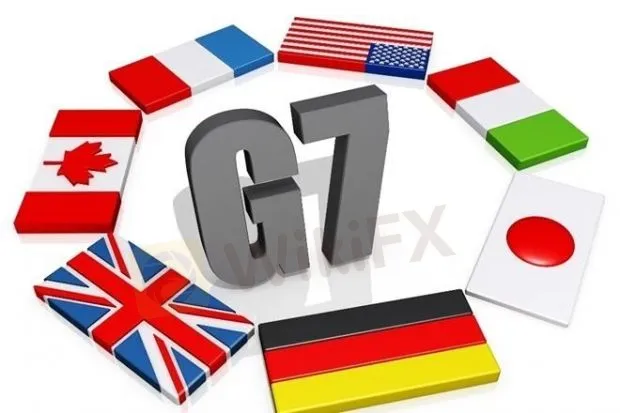简体中文
繁體中文
English
Pусский
日本語
ภาษาไทย
Tiếng Việt
Bahasa Indonesia
Español
हिन्दी
Filippiiniläinen
Français
Deutsch
Português
Türkçe
한국어
العربية
G-7, NATO leaders to highlight China challenge.
Abstract:The Group of Seven industrialized nations are expected to step up efforts to address China's "coercive economic practices" when their leaders meet in Germany later in June, while increasing pressure on Russia to end the war in Ukraine, U.S. officials said Wednesday.
Click Here: After you read it, Daily Routine with WikiFX
Challenges posed by China will also be addressed in a long-term strategy that the North Atlantic Treaty Organization plans to adopt at its summit scheduled in Spain after the G-7 gathering. NATO leaders will be joined in their meeting by four Asia-Pacific partners -- Japan, South Korea, Australia and New Zealand -- for the first time.

“This is a good example of how Russia's war against Ukraine has galvanized our partnerships around the world,” said one of the two U.S. officials, speaking on condition of anonymity.
“It's also showing how Ukraine is not causing us to take our eye off the ball on China,” the official added. “In fact, I think quite the opposite. It's firmed up the democratic world on both Russia and China.”
The G-7 summit, involving the United States, Britain, Canada, France, Germany, Italy, Japan plus the European Union, is set to take place for three days from Sunday in Schloss Elmau, Germany. The NATO summit will be held in Madrid on June 29 and 30.
Japanese Prime Minister Fumio Kishida plans to attend both events to underline that unilateral changes to the status quo by force should not be tolerated anywhere in the world, amid concern over China's assertiveness in the Indo-Pacific.
The other U.S. official said China's “unfair” and “coercive” economic practices are expected to be “a bigger topic of conversation” than last year's G-7 summit hosted by Britain, given “the extent to which those practices have become even more aggressive and more prominent in terms of the world economy.”
Concerns remain over China's extensive use of industrial subsidies, intellectual property theft and forced technology transfers. Beijing has also been seen using its economic leverage to pressure other countries into concessions.
To advance a common vision of the world grounded in “freedom and openness,” the United States is expecting the formal launch of a “global infrastructure partnership” at the G-7 summit that will support low- and middle-income countries, the official said.
A key highlight of the NATO summit, meanwhile, will be the endorsement of its new Strategic Concept, a document that will guide the 30-member trans-Atlantic alliance over the next decade.
The first U.S. official said Russia, which has invaded Ukraine, “continues to be the most serious and immediate threat to the alliance.” But the Strategic Concept is also expected to address for the first time “the challenges that we are seeing coming from China.”
The previous concept, drawn up in 2010, made no mention of China, while saying NATO would seek a “strategic partnership” with Russia.
NATO Secretary General Jens Stoltenberg said in an interview with U.S. media on Wednesday that the alliance does not view Beijing as an “adversary,” but there is a need to recognize the “rise of China,” citing its nuclear buildup, heavy investment in key technologies and attempts to control critical infrastructure in Europe.
Disclaimer:
The views in this article only represent the author's personal views, and do not constitute investment advice on this platform. This platform does not guarantee the accuracy, completeness and timeliness of the information in the article, and will not be liable for any loss caused by the use of or reliance on the information in the article.
Read more

Philippines Deports 29 Indonesians Linked to Online Scam Syndicate in Manila
Online scam groups in the Philippines trick Filipinos into gambling and love scams, from Manila to Bacolod, causing trafficking and pain as police fight back.

Why does your mood hinder you from getting the maximum return from an investment?
Investment decisions are rarely made in a vacuum. Aside from the objective data and market trends, our emotions—and our overall mood—play a crucial role in shaping our financial outcomes. Whether you’re feeling overconfident after a win or anxious after a loss, these emotional states can skew your decision-making process, ultimately affecting your investment returns.

Top Currency Pairs to Watch for Profit This Week - March 31, 2025
Discover the top 5 currency pairs to trade for profit this week, March 31, 2025—USD/JPY, EUR/USD, GBP/USD, AUD/USD, USD/CHF—with simple strategies and best times.

Stock Market Trading Volume Drops by 97.58 Billion Naira This Month
In February, Nigeria's stock market trading volume dropped by 97.58 billion naira, with foreign investors pulling back. Can domestic investors sustain the market?
WikiFX Broker
Latest News
How Crypto Trading Transforms FX and CFD Brokerage Industry
FCA Warns Against 10 Unlicensed or Clone Firms
CySEC Warns Against 14 Unlicensed Investment Websites
Top Currency Pairs to Watch for Profit This Week - March 31, 2025
Will natural disasters have an impact on the forex market?
Philippines Deports 29 Indonesians Linked to Online Scam Syndicate in Manila
Exposed: Deceptive World of Fake Trading Gurus – Don’t Get Fooled!
AI-Powered Strategies to Improve Profits in Forex Trading
Stock Market Trading Volume Drops by 97.58 Billion Naira This Month
Why does your mood hinder you from getting the maximum return from an investment?
Currency Calculator







